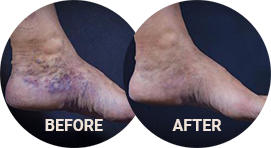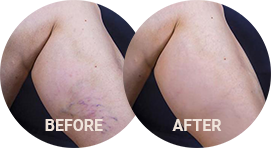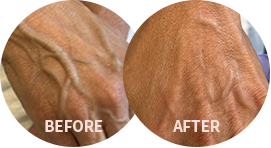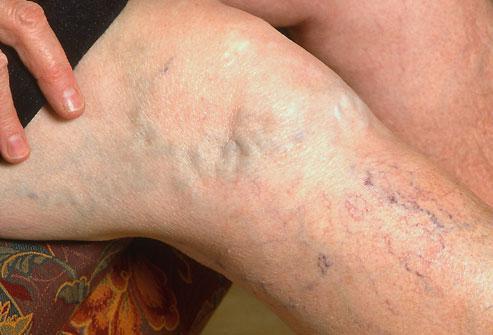If you have enlarged veins in your legs, you could be at risk for a blood clot. Deep vein thrombosis, or DVT, occurs when blood forms a clot in your leg. The clot can break free, travel through your bloodstream, and end up in your lung – causing a pulmonary embolism.
Another condition, known as May-Thurner Syndrome, or MTS, can increase your risk of DVT. At Premier Vein CLinic in Westlake, Ohio, vascular surgeon Dr. David Naar can work with you to help you lose weight and reduce your risk of MTS and DVT.
What is May-Thurner Syndrome?
MTS, also known as iliac vein compression syndrome, affects two major blood vessels where they cross over each other at your left hip. If you have MTS, the right iliac artery puts pressure on the left iliac vein, compressing it and constricting the blood flow.
The restricted blood flow makes it much more likely that a clot will develop as blood cells clump up at the narrowing, and that DVT will occur as a result. Women are at the greatest risk, especially if they are pregnant, just had a child, or take certain kinds of birth control. People who are overweight or obese also have increased risk of MTS.
What are the Symptoms of DVT?
You might experience deep vein thrombosis and not be aware of it, because many people don’t have any symptoms at all. Others may get a cramp in the calf, have swelling of the leg or a developing redness, or the leg might feel very warm.
Even if you don’t have any DVT symptoms, if you are overweight or obese or have other risk factors for DVT like pregnancy or smoking, you should watch out for symptoms of pulmonary embolism. These can include shortness of breath, dizziness, chest pain that worsens when you cough, and coughing up blood.
What does Weight have to do with Vein Health?
Being overweight or obese can increase your chances of blood clots and deep vein thrombosis. Part of the effect has to do with how weight gain changes the thickness of your blood, making it harder to force through the veins and therefore more at risk for clotting. Another factor is belly fat, which can cause compression of veins and make it harder for blood to pass through the deep veins below the waist.
Weight gain can mean your risk of DVT and pulmonary embolism doubles or triples, especially if your BMI exceeds 30. Having your vein health checked by Dr. Naar and discussing ways to lose weight or maintain a healthy weight can help you minimize your risk.
You can contact our office at 440-641-0433 or request an appointment with Dr. Naar online.





